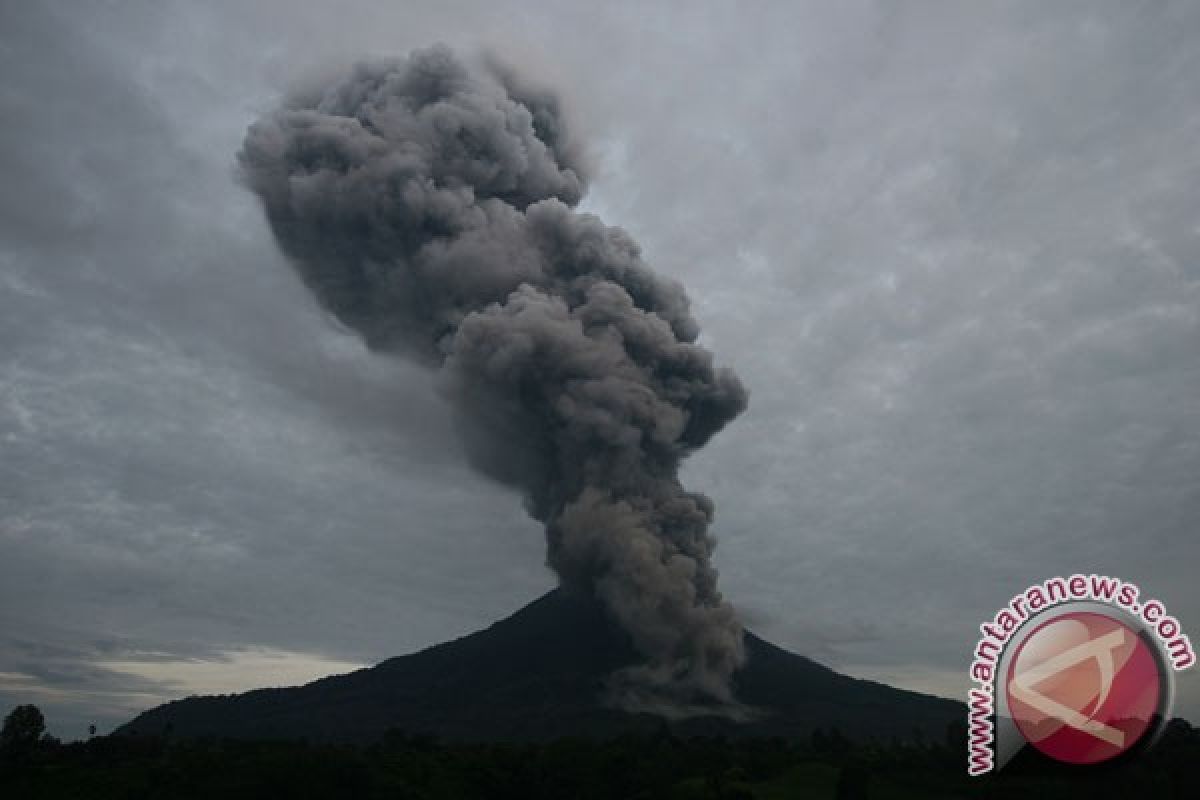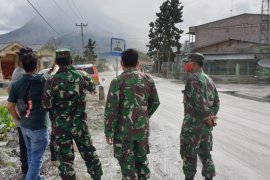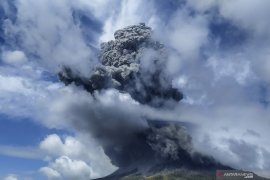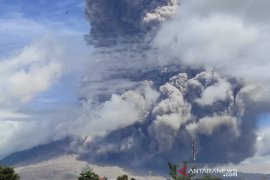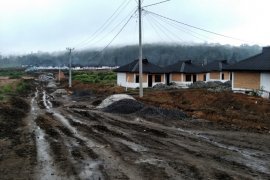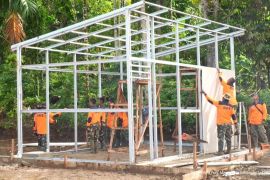"The transportation Ministry has issued an ashtam/notam (notice to airman) where all airlines are called on to avoid flying the routes on Mount Sinabung," Head of the Public Communication Affairs of the Ministry of Transportation, Bambang S Ervan, said here on Monday.
He said the ashtam was a special notice to airmen which contained information on the change in the activities of a volcano, eruption and ash cloud which had the potential to affect the operation of airplanes.
In connection with Mt Sinabung, the directorate general of air transportation issued the Ashtam on Monday morning at 7.15 a.m.
Through the notice, all flights are requested to avoid the air corridor passing on the erupting mount.
"If there is a latest change, we will issue notifications through an ashtam," he said.
He said that Mount Sinabung on Sunday erupted, spewing volcanic ash up to a height of 25,000 feet or about 8,000 meters which moved westward.
It was earlier reported that Mount Sinabung erupted on Sunday at 3.58 p.m. Up to now a total of 5,962 villagers have been evacuated to 12 places. Emergency response has been imposed until November 23, 2013.
Those affected by the disaster left their homes and plantations to live in temporary shelters. Most of them are farmers producing vegetables and fruits such as chili, tomato, oranges and citrus.
"The government and local banks are considering rescheduling the maturity of credits extended to farmers. If necessary, we will give them more credits so that after the disaster they can rebuild their business using the credit fund," Coordinating Minister for Peoples Welfare Agung Laksono said on Sunday.
Volcanic material spewed from Mount Sinabung last Nov 12 has destroyed 1,893 hectares of citrus plantations in Tanah Karo and impacted fruit production.
"The number of damaged citrus plantations may increase as the data was only gathered from five sub-districts located near Mount Sinabung," the Head of Karo Districts Agriculture Office, Agustoni Tarigan said on Wednesday.
The 1,893 damaged plantations are located in five sub-districts, namely Merdeka, Berastagi, Namanteran, Simpangempat and Payung.
In fact, data from the local agriculture office show that there are around 14,000 citrus plantations in the Karo District. The low production is estimated to last until next year as the effect of the volcanic material will be seen during the next harvest. The local administrations plan to rejuvenate damaged citrus plantations will have to wait until Mount Sinabungs eruption has stopped.
Mount Sinabung has erupted several times since September this year. The volcano, which is located 2,460 meters above sea level, erupted again on Sunday at 3:58 p.m.
Karos administration has set aside a budget to provide 165,000 citrus seedlings for local farmers to replace the old trees.
"Providing the seedlings is one of the efforts being made to conserve and develop one of Karos typical fruits as many of the citrus trees were old and suffering from diseases," Tarigan stated.
(A014/ine/O001 )
EDITED BY INE
(A014/KR-BSR/O001)
Editor: Jafar M Sidik
Copyright © ANTARA 2013
